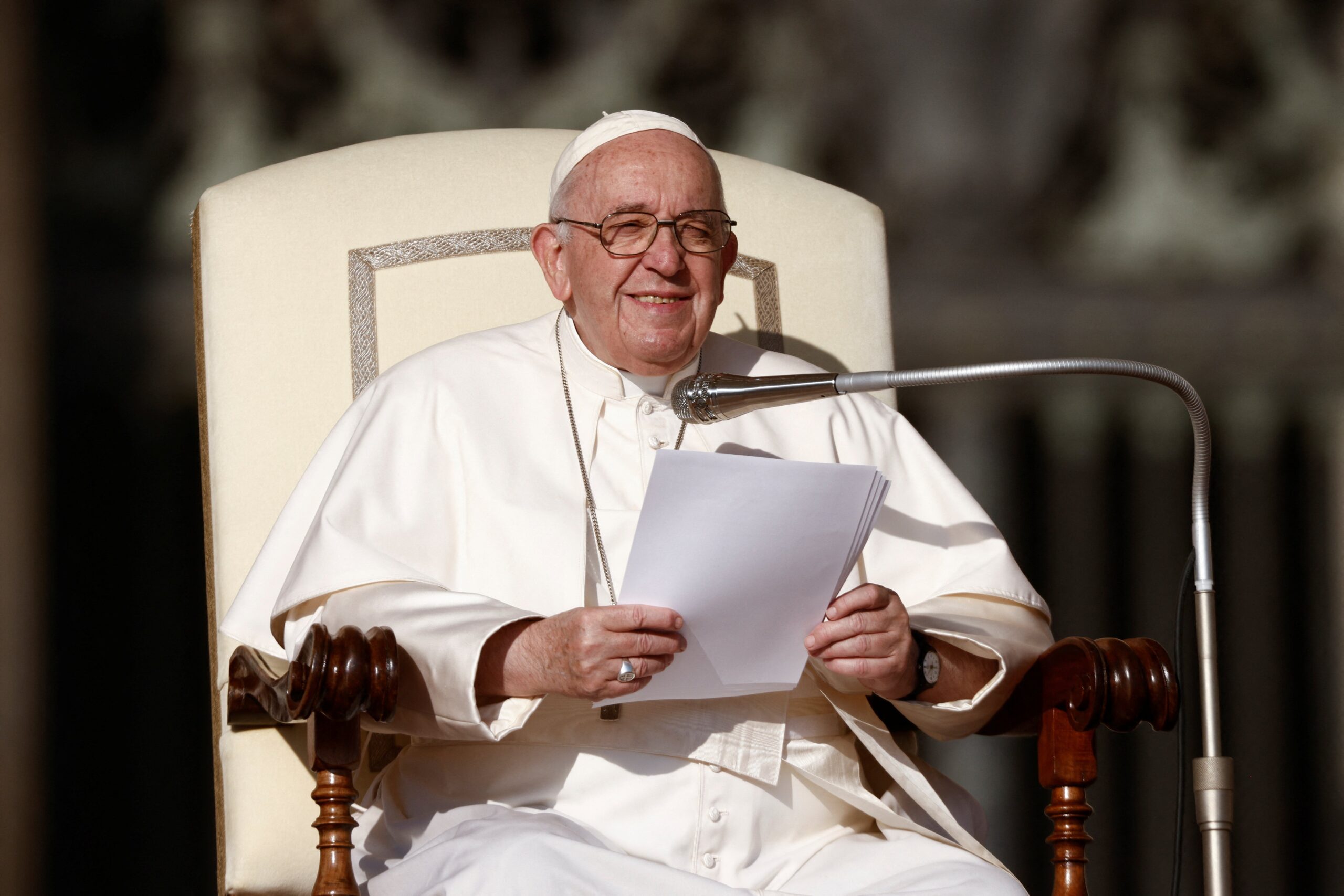In his catechesis prepared for this Wednesday, Pope Francis reminds the faithful that “what truly matters for happiness is what we carry in our hearts.”
Due to his delicate health, this is the eighth week (including the break in the Roman Curia’s Spiritual Exercises) that there has been no General Audience. However, as on previous occasions, the Vatican released today the text of the catechesis prepared by the Holy Father from Casa Santa Marta, where he continues his recovery since leaving Gemelli Hospital on March 23.
Continuing the series of catechesis on the encounters Jesus had during his public life, Pope Francis reflects this time on the encounter he had with a rich man.
Below is Pope Francis’ catechesis:
Dear brothers and sisters,
Today we pause for another of Jesus’ encounters narrated in the Gospels. This time, however, the person encountered is unnamed. The evangelist Mark presents him simply as “a man” (10:17). He is a man who has kept the commandments since his youth, but who, despite this, has not yet found the meaning of his life. He is searching for it.
Perhaps he’s someone who hasn’t made up his mind yet, despite seeming committed. In fact, beyond the things we do, the sacrifices, or the successes, what truly matters for happiness is what we carry in our hearts. If a ship must set sail and leave the port to sail the open sea, it may be a wonderful ship, with an exceptional crew, but if it doesn’t lift the ballast and anchors that keep it firm, it will never sail. This man built himself a luxury ship, but it stayed in port!
As Jesus walks along the road, this man runs up to Him, kneels before Him, and asks: “Good Teacher, what must I do to inherit eternal life?” (v. 17). Let’s notice the verbs: “What must I do to inherit eternal life?” Since observing the law has not given him the happiness and certainty of being saved, he turns to Jesus as his teacher. What is striking is that this man doesn’t know the vocabulary of gratuitousness. Everything seems due. Everything is an obligation. For him, eternal life is an inheritance, something obtained by right, through meticulous observance of commitments. But in a life lived like this, although certainly for the good, what room can love have?
As always, Jesus goes beyond appearances. If on the one hand this man presents Jesus with his excellent resume, Jesus goes further and looks inside him. The verb Mark uses is very significant: ” he looked at him with love ” (v. 21). Precisely because Jesus looks inside each of us, he loves us just as we truly are. What could he have seen, in fact, inside this person? What does Jesus see when he looks inside us and loves us, despite our distractions and our sins? He sees our fragility, but also our desire to be loved just as we are.
Looking at him within himself—the Gospel says—” he looked at him with love ” (v. 21). Jesus loves this man before ever inviting him to follow him. He loves him as he is. Jesus’ love is gratuitous: the exact opposite of the logic of merit that tormented this person. We are truly happy when we realize that we are loved like this, freely, by grace. And this also applies to relationships between us: as long as we try to buy love or beg for affection, those relationships will never make us feel happy.
The proposal Jesus makes to this man is to change his way of living and relating to God. Jesus recognizes that, within him, as in all of us, there is something missing. It is the desire we carry in our hearts to be loved. There is a wound that belongs to us as human beings, the wound through which love can pass.
To fill this void, we don’t have to “buy” recognition, affection, or consideration; instead, we have to “sell” everything that weighs us down to free our hearts. It’s pointless to continue holding onto things; rather, we need to give to the poor, make them available, share. Share.
Finally, Jesus invites this man not to remain alone. He invites him to follow him, to be in a relationship, to live a relationship. Only in this way, in fact, will it be possible to escape from anonymity. We can hear our name spoken only within a relationship, in which someone calls us. If we remain alone, we will never hear our name spoken and we will remain “someone,” anonymous. Perhaps today, precisely because we live in a culture of self-sufficiency and individualism, we find ourselves more unhappy, because we no longer hear our name spoken by someone who loves us freely.
This man doesn’t accept Jesus’ invitation and remains alone, because the burdens of his life hold him back in the harbor. Sadness is the sign that he hasn’t been able to leave. Sometimes we think of them as riches, but instead, they’re just weights blocking us. The hope is that this person, like each of us, can sooner or later change and decide to put out to sea.
Sisters and brothers, let us entrust to the Heart of Jesus all those who are sad and indecisive, so that they may feel the loving gaze of the Lord, who is moved by tenderly looking within us.



